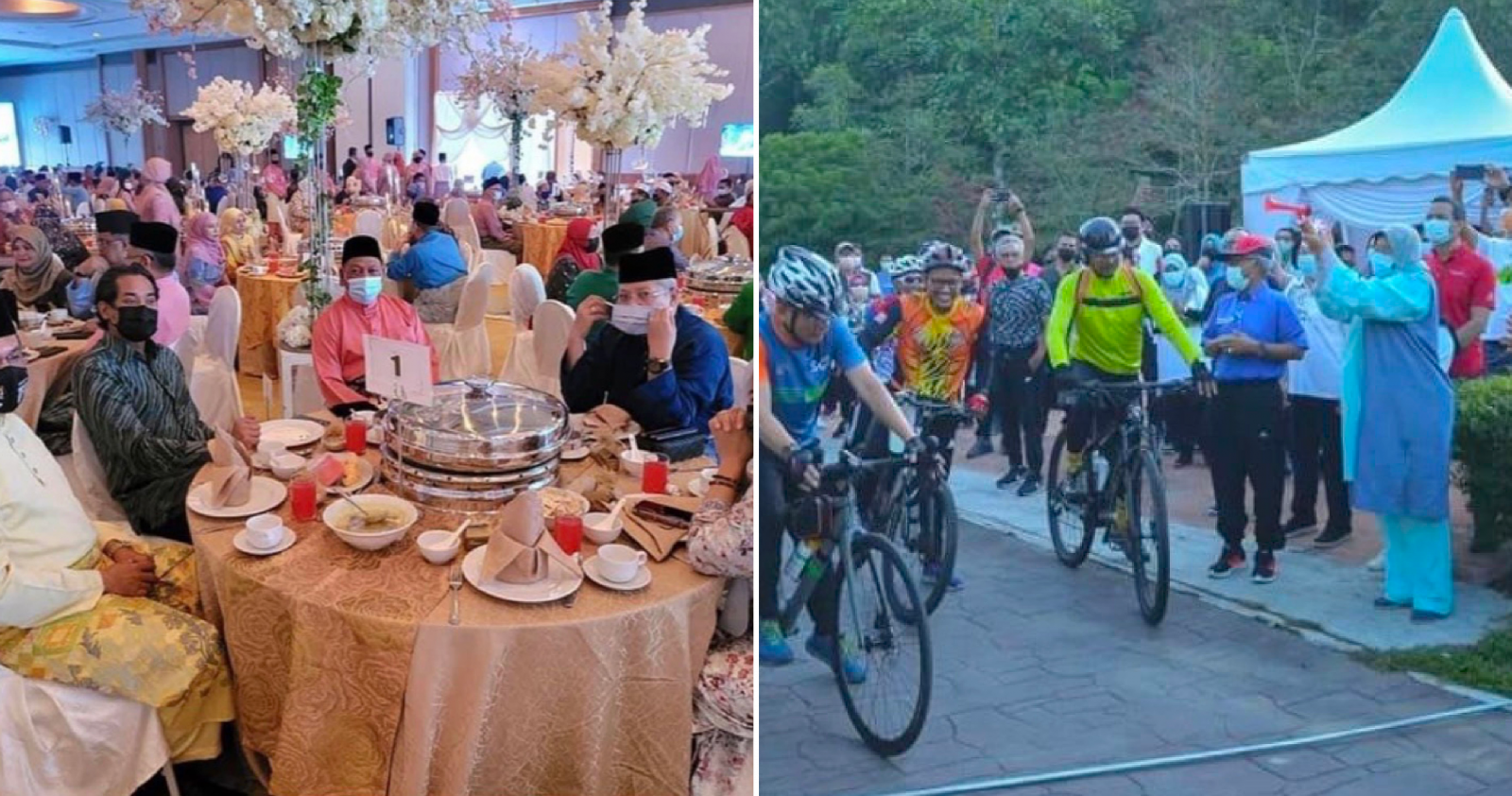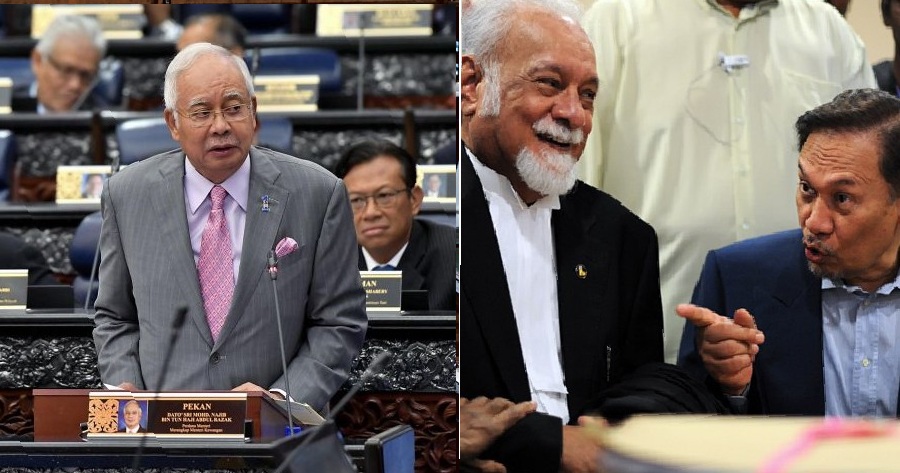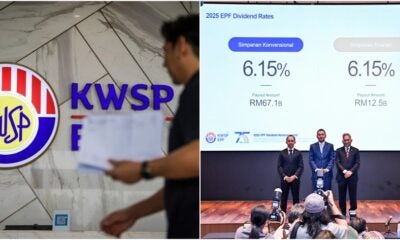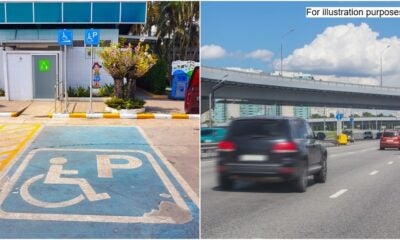Recently, the government introduced an amendment via an Emergency Ordinance to Act 342 or the Prevention and Control of Infectious Diseases Act 1988 in which the punishment for anyone violating Covid-19 SOPs were increased to fine up to RM10,000 for individuals and RM50,000 for companies or corporations. This amendment uses the Emergency powers vested to the government during the state of Emergency and would still be in place up until 6 months after the Emergency is over.
However, since the Emergency Ordinance amendment to Act 342, it seems that enforcement authorities and the general public became confused regarding its implementation with reports of many Malaysians being compounded for RM10,000 for even the slightest offence of breaching Covid-19 SOPs. One example of this happening is when a Malaysian was compounded RM10,000 for wearing a mask under chin at a Perak grocery store on 12 March 2021.
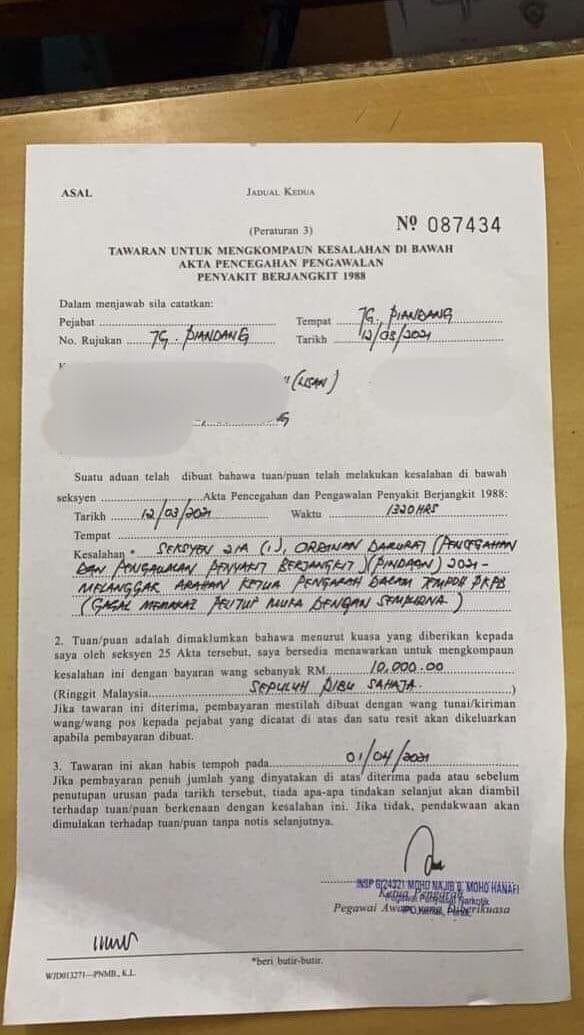
Following a series of complaints, de facto Law Minister, Datuk Seri Takiyuddin Hassan clarified that the RM10,000 fine is only for serious offences as well as repeat offenders. The government then subsequently released a guideline detailing the amount of fine according to offences, some two months after the amendment was announced.
However, another issue arises following the Emergency Ordinance amendment which have plagued the Perikatan Nasional (PN)’s administration whereby the public claimed there have been double standard in the enforcement of Covid-19 SOPs. This comes after photos went viral of Ministers and government Members of Parliament (MPs) were seen breaching Covid-19 SOPs without being subjected to the exorbitant fines that the ordinary rakyat face.
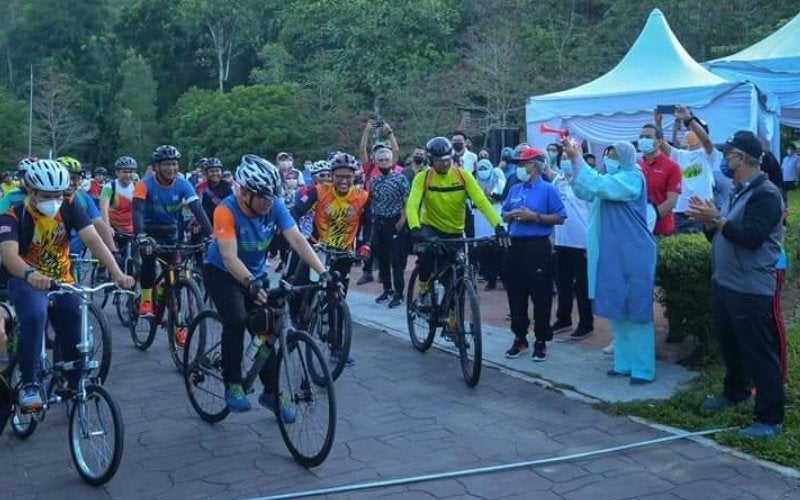
The most recent example were the viral photos of various Ministers attending a wedding in Negeri Sembilan which many claims to be against Covid-19 SOPs which bars interstate travels. There was also a cycling event attended by Ministers which many claim to have broken Covid-19 SOPs.
As reported by Malaysiakini, police have already conducted investigations on both incidences. However, many are not convinced of these politicians being charged by the police with some citing the recent case involving Federal Territories Minister, Tan Sri Annuar Musa. The Attorney-General have yet to decide whether there was a breach of SOP or to charge Annuar Musa for an offence.
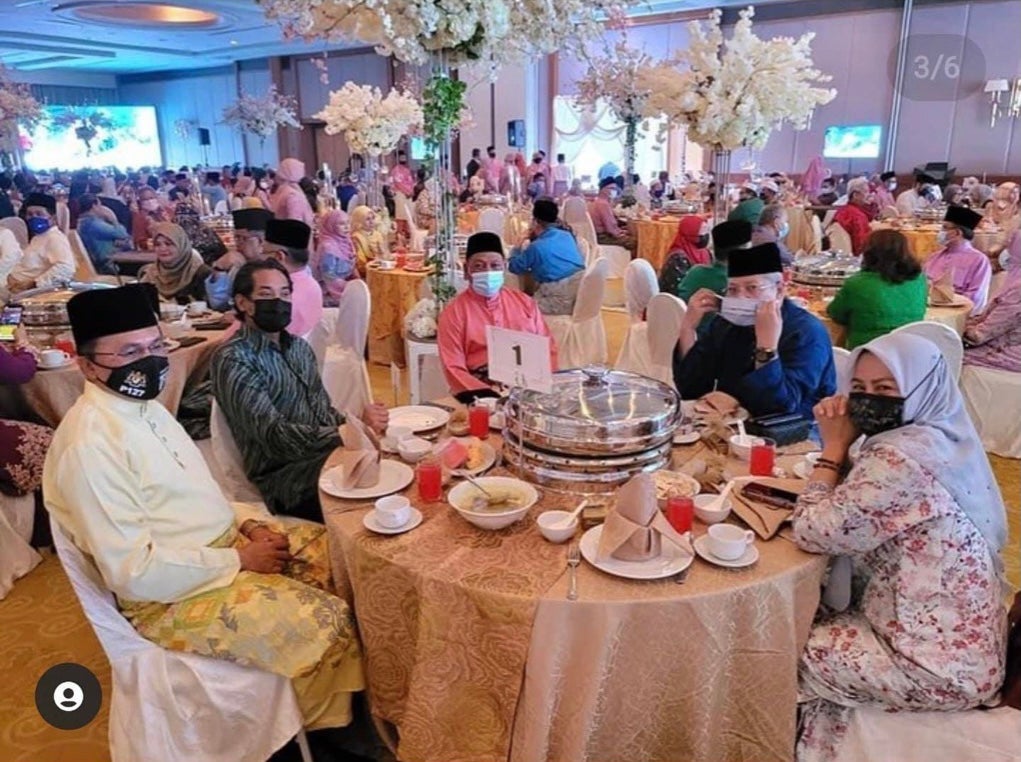
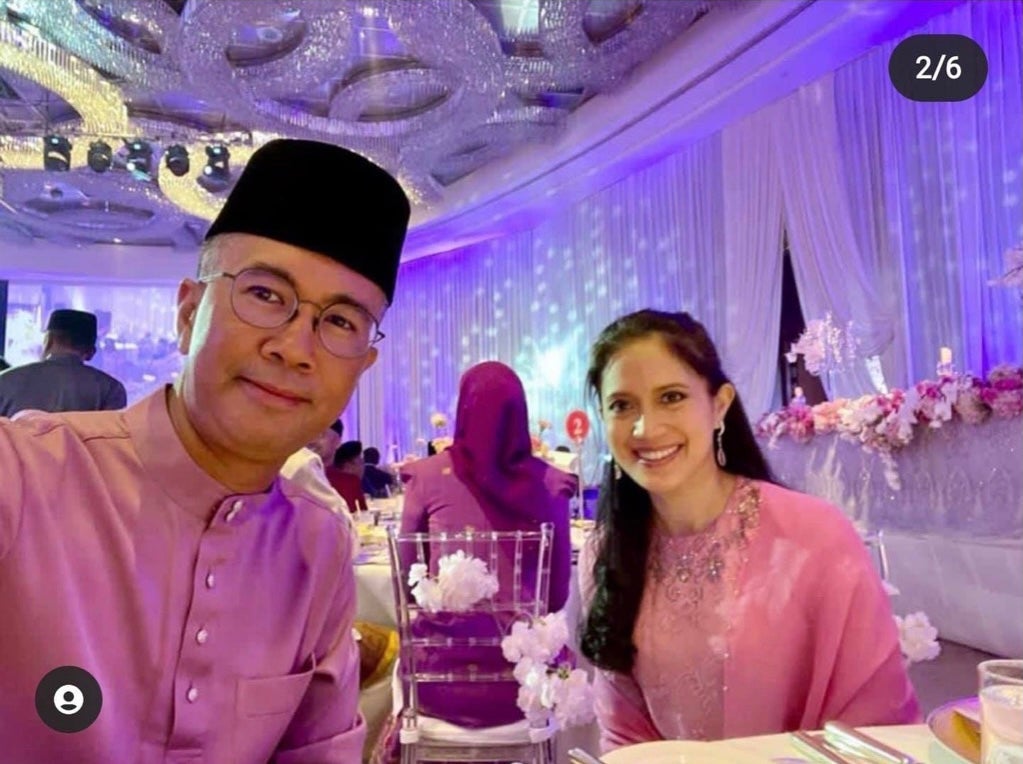
Some have even go as far as saying the authorities won’t be charging Ministers of MPs with Covid-19 SOP breach because a fine of above RM2,000 would make them disqualified from holding a Parliamentary seat. Well, with the recent amendment and the offering of compounds, this is actually no longer the case. Simply put:
An MP will not be disqualified from Parliament even if they are compounded more than RM2,000.
Why, you ask? Well, let’s examine the relevant laws governing the disqualification of MPs to find out.
1. Article 48 of the Federal Constitution
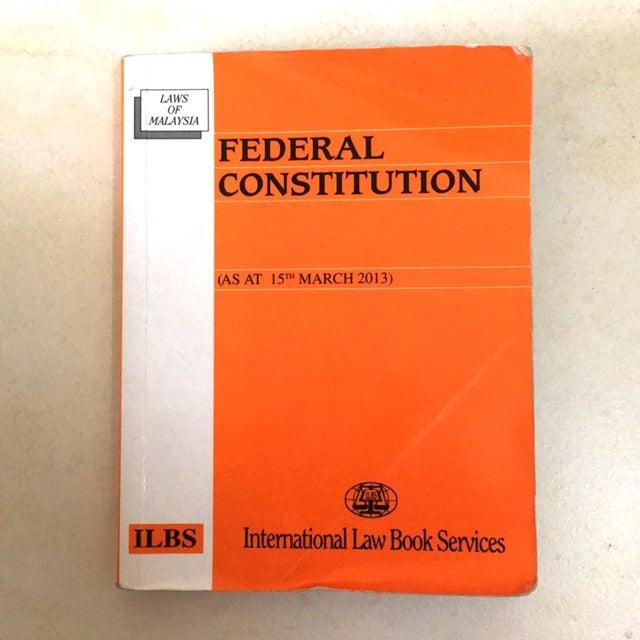
The highest law of the land, the Federal Constitution deals specifically with the disqualification for membership of Parliament in Article 48. In this case, Article 48 (1)(e) is the most relevant:
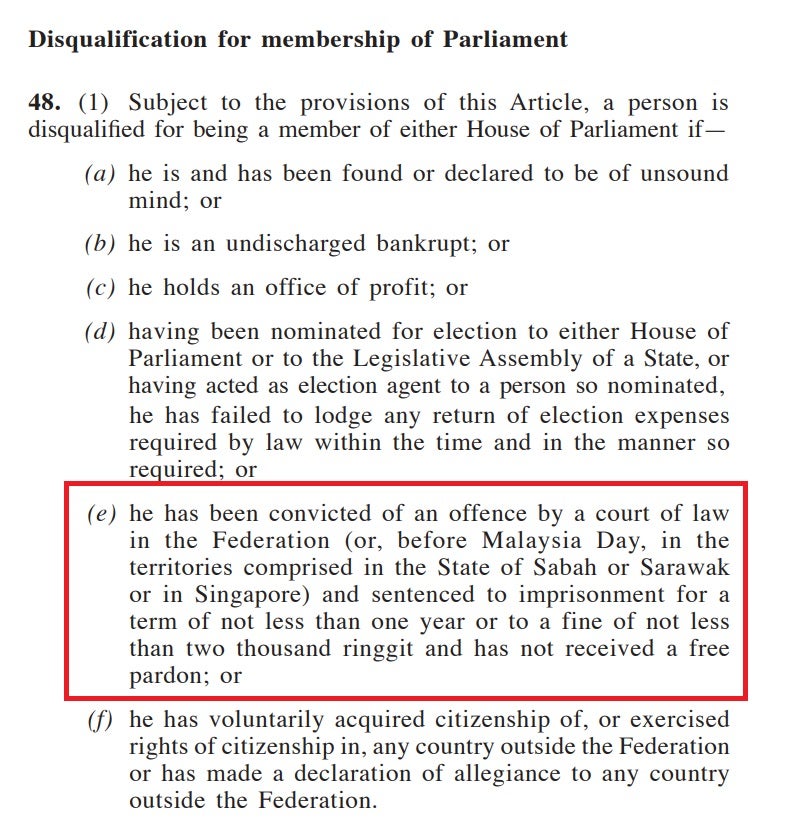
Article 48 of the federal constitution
Based on the fine of RM10,000 that are faced through breaching Covid-19 SOPs, it may look like MPs that broken SOPs will be disqualified as an MP as the fine is well above the RM2,000 fine which Article 48 (1) prescribes.
If we were to examine the Emergency Ordinance which amended Act 342, Section 25 of the Act is now substituted to the below. Specifically, Section 25 (a) now prescribes a punishment of the sum of money up to RM10,000.
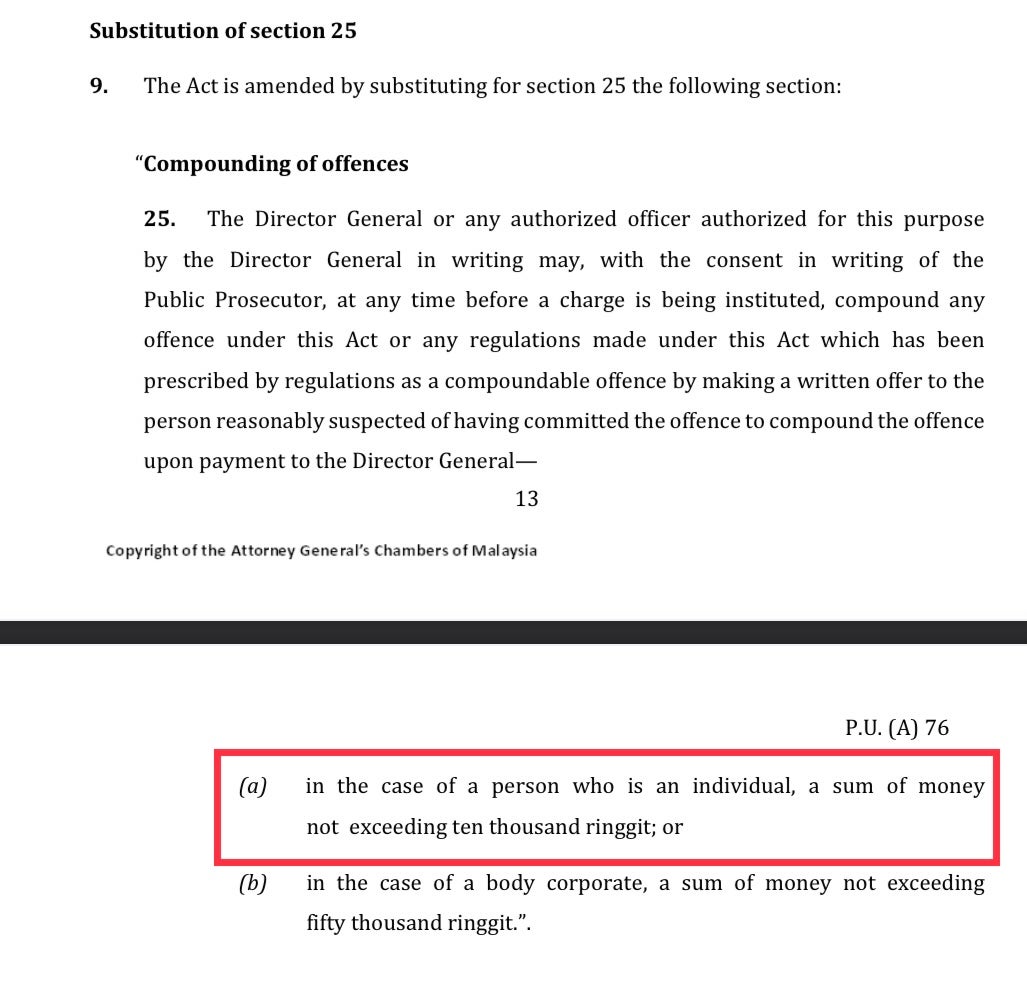
So, why won’t an MP lose a Parliamentary seat if they were subjected to the amended Act 342 and compounded for more than RM2,000? Well, because of the distinction between a compound and a fine.
What is an offer to compound?
An offer to compound is an offer to pay a fine sum without going through prosecution in court. A compounding of offence is usually offered by enforcement bodies to encourage early settlement.
Example: For parking offences, local authorities offer a compound of RM100 for early settlement within 14 days. If the compound is not paid, the offender must pay RM200 if the prosecution was heard in court and the offender is found guilty.
Let’s go back to Article 48 (1)(e) of the Federal Constitution. It is clearly stated there that an MP would only be disqualified should they face conviction of an offence by a court of law in the Federation.

Hence, any MP compounded more than RM2,000 won’t have his seat in Parliament under threat as should they settled the compound amount, the case won’t be brought to a court of law. Furthermore, by paying the compound, any individual won’t have a criminal conviction on his record.
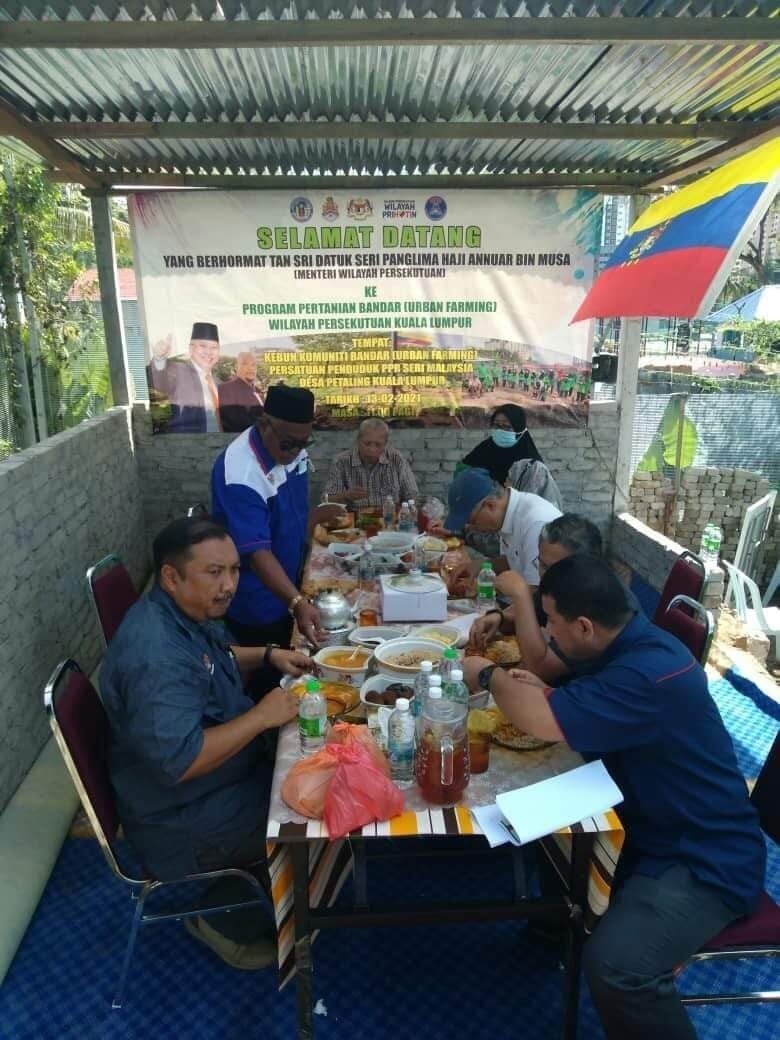
This is different from cases prior to the amendment such as Annuar Musa’s and Minister of Plantation Industries and Commodities, Datuk Mohd Khairuddin Aman Razali. The alleged breach of Covid-19 SOP by Annuar Musa happened before the the offer to compound is introduced hence his case would be brought to court should the AG allows it.
As for Khairuddin’s case, he should be liable under Section 186 of the Penal Code which prescribes:
- Imprisoned for up to 2 years, or
- Fined RM10,000, or
- Both of the above.
This was announced by Senior Minister (Defence), Ismail Sabri back in April as reported by NST. However, Khairuddin’s case was never brought to court as the police announced No Further Action (NFA) as he was compounded RM1,000 by MOH under Act 342 before the Emergency Ordinance amendment as soon as he arrived in Malaysia.
Confused? Well, here’s a TLDR:
- An MP will only be disqualified from holding a Parliamentary seat if they are fined more than RM2,000 in a court of law.
- Under the Emergency (Prevention and Control of Infectious Diseases) (Amendment) Ordinance 2021, offenders are offered an offer to compound of up to RM10,000 for individuals.
- If they settled the compound, the case won’t be brought to court.
- Hence, their MP positions won’t be affected.
Also read: Why Najib is Not Disqualified From Parliament Despite Conviction & Other Similar Past Examples

